Britons among thousands queuing for days without food and water amid chaos at Egypt-Sudan border
An NHS doctor with her children describes scenes of chaos as thousands of desperate people wait to cross border in the heat with little food or water
Your support helps us to tell the story
From reproductive rights to climate change to Big Tech, The Independent is on the ground when the story is developing. Whether it's investigating the financials of Elon Musk's pro-Trump PAC or producing our latest documentary, 'The A Word', which shines a light on the American women fighting for reproductive rights, we know how important it is to parse out the facts from the messaging.
At such a critical moment in US history, we need reporters on the ground. Your donation allows us to keep sending journalists to speak to both sides of the story.
The Independent is trusted by Americans across the entire political spectrum. And unlike many other quality news outlets, we choose not to lock Americans out of our reporting and analysis with paywalls. We believe quality journalism should be available to everyone, paid for by those who can afford it.
Your support makes all the difference.A British medical student and NHS doctor with her children are among thousands stuck in chaotic scenes at Sudan’s border with Egypt, in what is rapidly deteriorating into a humanitarian crisis.
The Britons became trapped in Khartoum when ferocious fighting between Sudan’s top generals erupted and they were forced to make the treacherous journey to the border where dire conditions awaited them.
Dr Lina Badr, 42, an NHS gynaecologist based in Birmingham, and her three children have been waiting in the queue for two days. She described chaos as thousands of desperate people wait to cross into Egypt in the heat with no way of securing food or water.

“My little one has been getting unwell by the day. He’s been eating dried cake in wrappers,” she told The Independent. “My cousin’s boys vomited twice, not sure if it’s nerves.”
A lack of access to clean water has forced Mohamed Adam, 21, a final-year medical student, his sister, an NHS doctor, and their cousin to drink dirty water from a communal supply that has left their cousin sick.
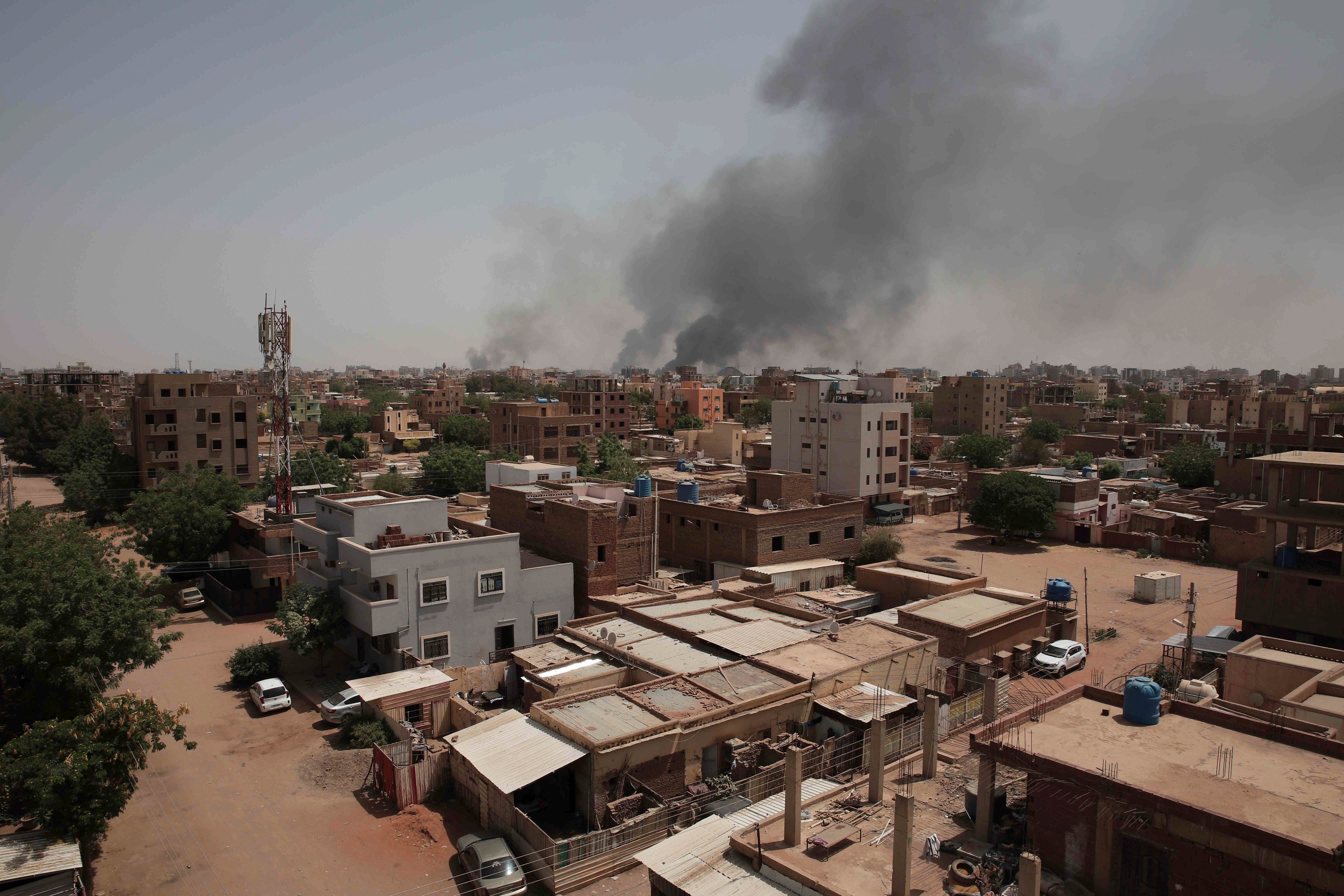
Speaking to The Independent from the border, where he has been waiting for almost 36 hours, Mr Adam said: “People are extremely stressed and fighting over everything. Yesterday, I was very stressed and tired but today I woke up feeling grateful to even be alive. Emotions are all over the place for everyone – people are grateful, sad, depressed, sick.
“Some would prefer to die than be tortured like this waiting. This is torment to be forced to wait just to evacuate. We’ve gone from one humanitarian crisis to another humanitarian crisis. We need some pressure put on the Egyptian authorities to speed up the process.”
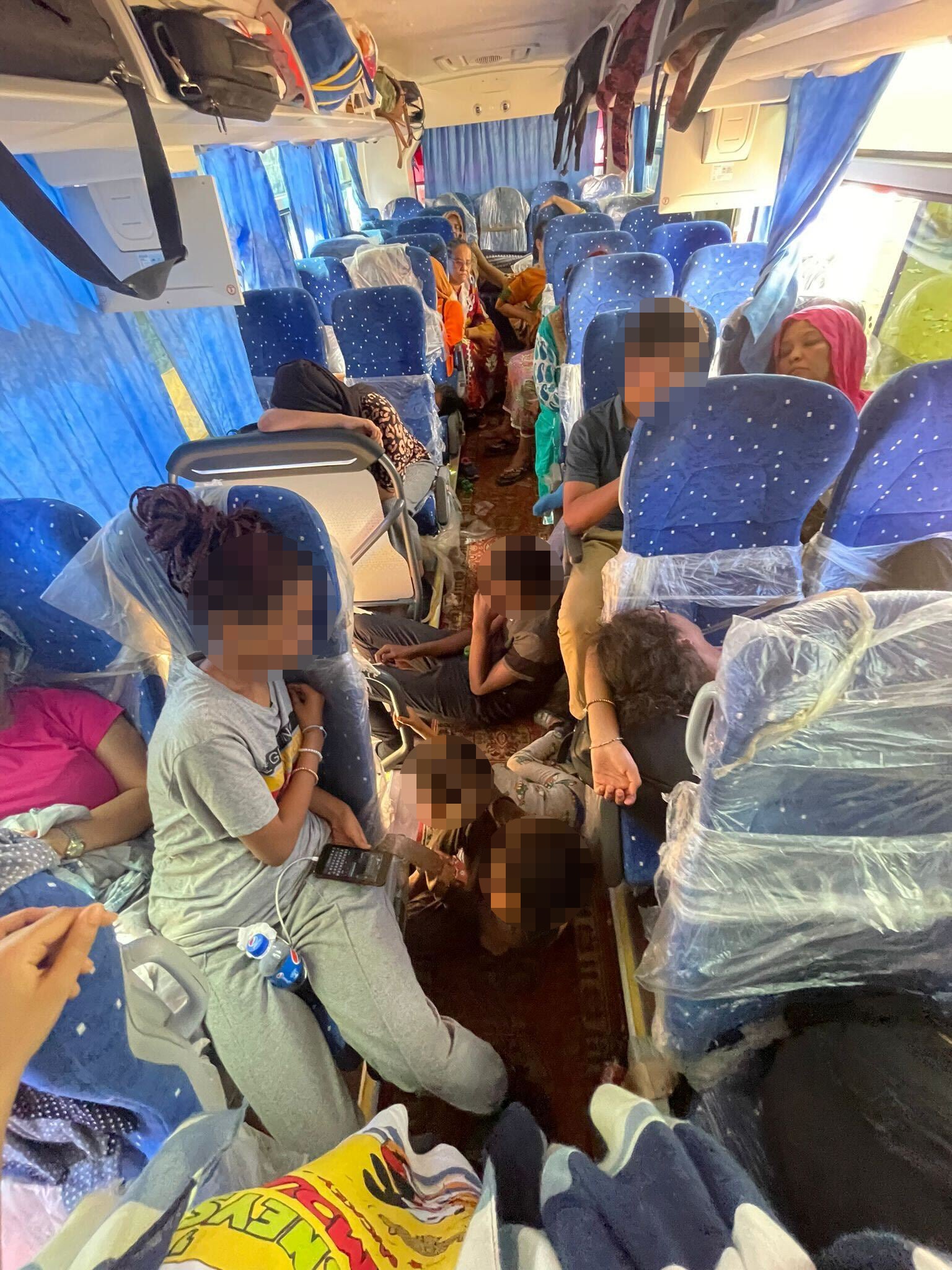
He said neither he nor anyone he knew had received any aid there, but buying a multipack of water would cost him almost a fifth of the total amount of money he has left, which is around £28.
The Independent understands no aid agencies are currently operating at the Egypt-Sudan border.
“Where is everyone?” questioned Sherine Tadros, deputy director of the charity Amnesty International, who said the situation in Sudan stands in stark contrast to the humanitarian infrastructure usually put in place during a conflict.
She said it was taking people at least two or three days to cross the border because of slow processing times. “It does seem that there is a growing humanitarian crisis at the Egypt-Sudan border as more and more people are trying to flee but the processing of them is incredibly slow,” she said.
Meanwhile, the number of people trying to flee using that route is growing, with Mr Adam seeing up to 60 buses filled with at least 50 people each in the queue.
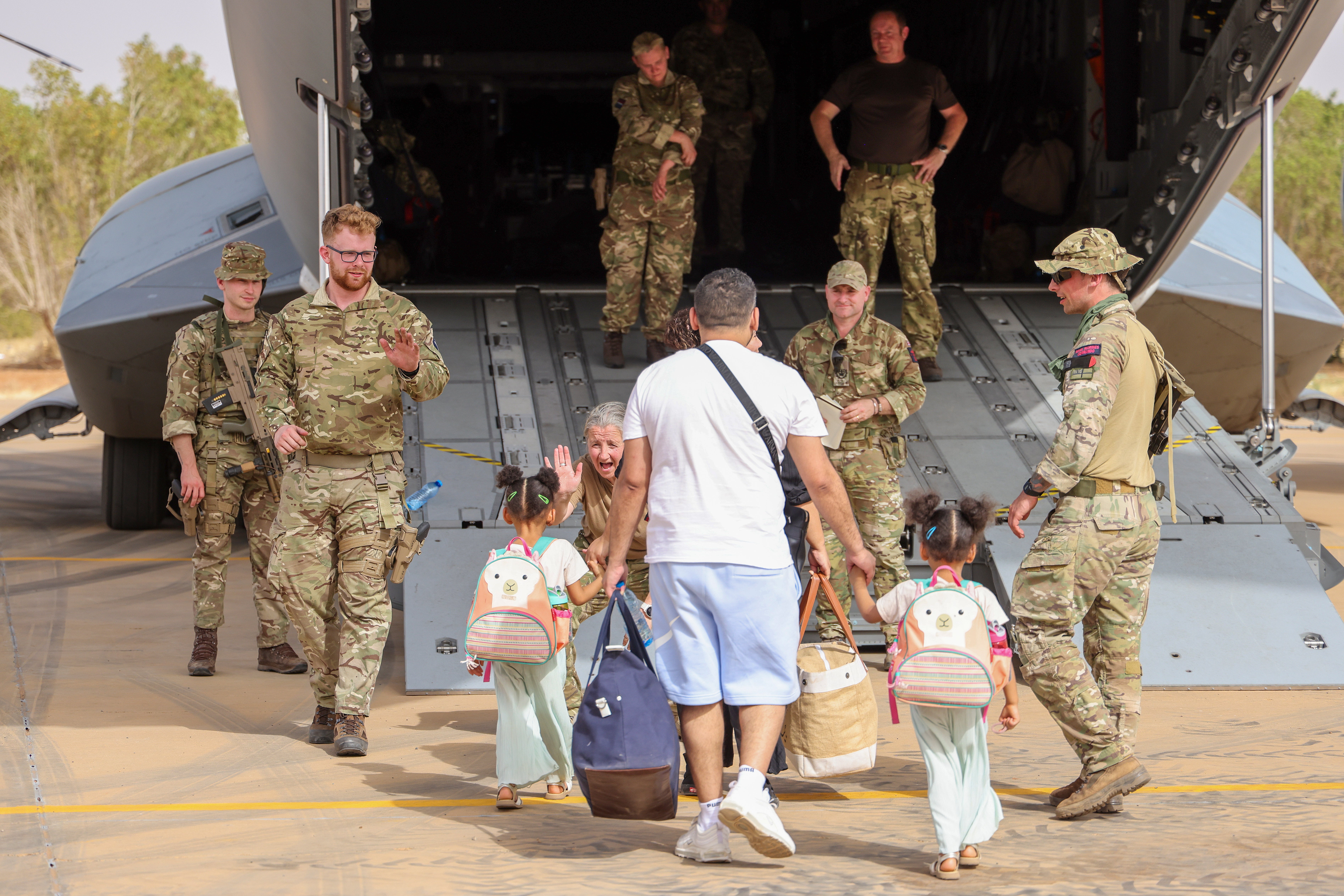
Like Dr Badr, Mr Adam travelled there on a bus, which cost around $20,000 (£16,000) to hire as prices of vehicles and fuel have soared amid the escalating violence. He, his sister and their cousin – all British-Sudanese dual nationals – made the perilous journey across the Sudanese capital in a tuk-tuk to meet the bus to leave.
Khartoum – where Mr Adam had been studying at medical school – was “terrifying to say the least”, he said, with gunshots constantly sounding, petrol stations being set on fire and dead bodies strewn across the ground. “Hearing the sound of jets flying over the house – every plane you hear makes you feel a sense of dread. The sound of a plane going overhead and releasing its payload onto the neighbourhood nearby... that will haunt many people.”
Like many others, Dr Badr and her cousin, a dentist from Brighton, had been visiting the Sudanese capital for Eid al-Fitr when fighting broke out. They drove for 24 hours to get themselves and 11 children to the border.
Dr Badr is concerned about documentation as she was among the many who fled the capital under bombing and so could not bring their passports or money with them. “Here on the borders. we have been told people are managing to pass through even with passport issues by paying their way out. These are payments of $5,000 and over,” she added.
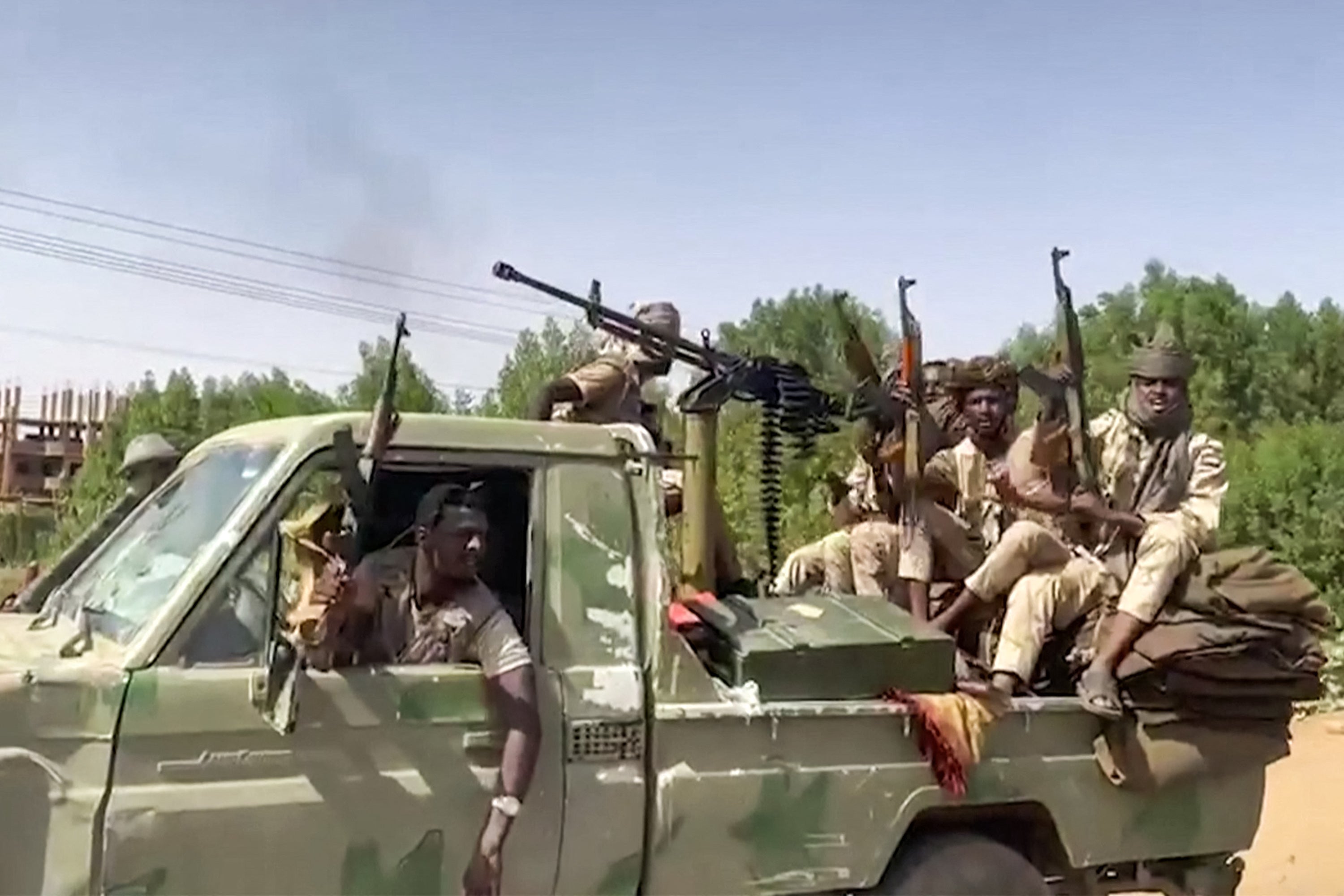
More than 450 people have been killed and over 4,000 people have been injured since violent fighting erupted between Sudan’s military and rival paramilitary the Rapid Support Forces for control of the country. Tens of thousands of refugees have fled the country in recent days, according to the UN.
Despite desperate pleas for the UK government for help, Dr Badr had received no communication except for automatic email replies telling them to shelter where they are. She said they repeatedly tried to call the hotlines but none of them worked.
Describing his “disillusionment” and “anger” with the British government, Mr Adam said: “We were waiting for the British evacuation that never came. Whatever they try to do now is too little, too late.”
On Wednesday, the first flights for British citizens landed in the UK from Sudan (via Cyprus) after the government announced a large-scale evacuation following an agreed 72-hour ceasefire. But it came days after other countries started evacuating their citizens and two days after UK diplomats were rescued.
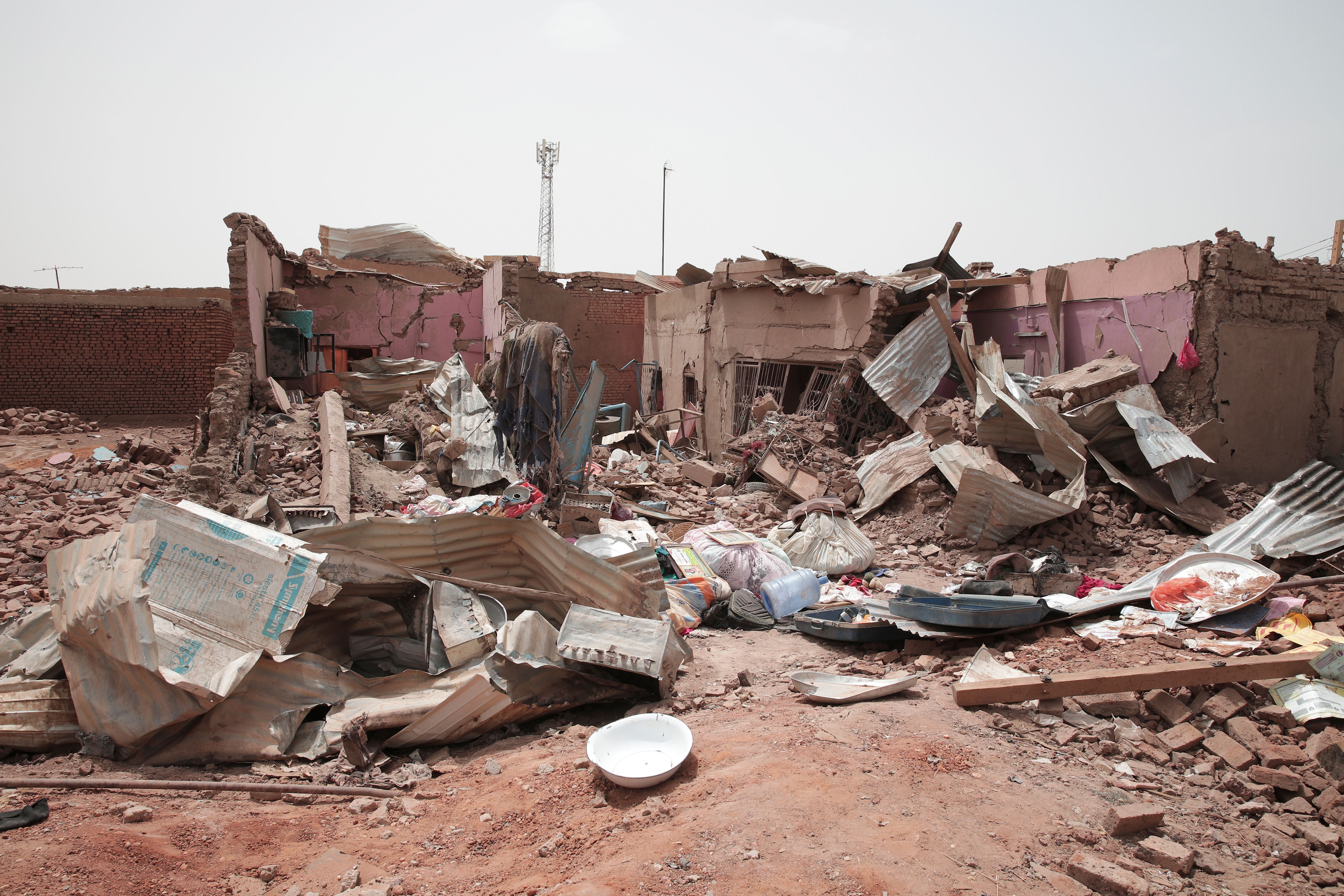
A British government spokesperson said: “We are working on other potential options for helping British nationals leave Sudan, including from other points of exit. In parallel, we are also working intensively, alongside international partners, to maintain the ceasefire and bring an end to fighting – the single most important thing we can do to ensure the safety of British nationals and others in Sudan.
“The situation on the ground is highly volatile and British nationals should continue to exercise judgement about their own circumstances, including whether to relocate at their own risk.”
The Independent has approached the Egyptian government for comment.




Join our commenting forum
Join thought-provoking conversations, follow other Independent readers and see their replies
Comments